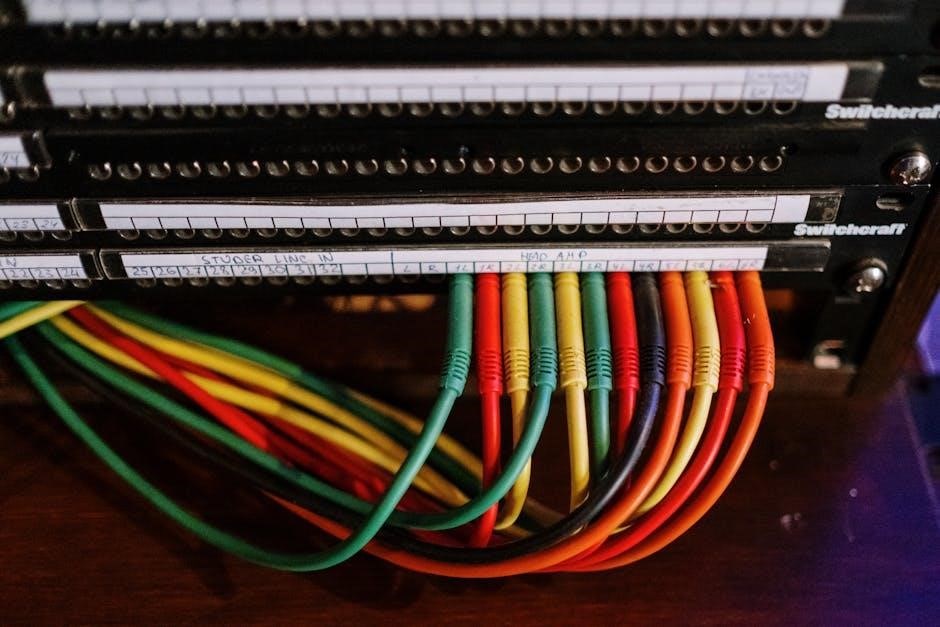self-aware narcissists filetype:pdf
Self-Awareness in Narcissists⁚ A Complex Issue
Self-awareness in narcissists presents a multifaceted enigma. While some exhibit a keen understanding of their grandiose traits, others remain completely oblivious, justifying their actions and deflecting accountability. The degree of self-awareness significantly impacts their behavior and potential for change. This spectrum of awareness is crucial to understanding the complexities of narcissistic personality disorder.
The Spectrum of Self-Awareness
The level of self-awareness among narcissists varies dramatically. At one end, some individuals possess a high degree of self-awareness, readily recognizing their grandiose traits and manipulative behaviors. They might even exploit these traits for personal gain, understanding their impact on others. Conversely, many narcissists exhibit a complete lack of self-awareness, remaining entirely blind to their flaws. They often rationalize their actions, blaming external factors or others for any negative consequences. Between these extremes lies a spectrum of partial self-awareness, where individuals might acknowledge certain aspects of their narcissism while remaining defensive about others. This variability complicates diagnosis and treatment significantly;
Recognizing Grandiose Traits
A key aspect of narcissistic personality disorder is the presence of grandiose traits. Self-aware narcissists often recognize these traits within themselves, acknowledging their inflated sense of self-importance, need for admiration, and belief in their own superiority. This recognition, however, doesn’t necessarily translate into remorse or a desire for change. Instead, some may consciously use their grandiose traits to manipulate situations and people to their advantage. They may actively cultivate an image of exceptionalism, leveraging their perceived strengths to achieve their goals. The ability to identify these traits doesn’t automatically equate to a willingness to address them or mitigate their negative impact on others; it simply represents a level of self-understanding, potentially without accompanying self-criticism.
The Role of Insecurities
Despite outward displays of confidence and superiority, a core component of narcissism often involves profound insecurities. While a self-aware narcissist might acknowledge their grandiose self-image, they may not fully connect it to the underlying vulnerabilities driving it. These insecurities, often stemming from childhood experiences or perceived inadequacies, fuel the need for external validation and admiration. The pursuit of power and control, typical of narcissistic behavior, can be seen as a defense mechanism against these deep-seated fears of inadequacy and rejection. Even with self-awareness, addressing these underlying insecurities is a significant challenge, requiring substantial introspection and potentially therapeutic intervention. The connection between grandiose presentation and fragile self-esteem remains a critical area for understanding the complexity of narcissistic personality.
Contrasting Perspectives on Self-Awareness
The existence of self-aware narcissists challenges traditional understandings of the disorder. Some readily acknowledge their traits, while others remain completely unaware, creating a dichotomy in understanding and treatment approaches.
The Aware Narcissist⁚ A Paradox?
The concept of a self-aware narcissist presents a fascinating paradox. While possessing insight into their narcissistic traits, they may not necessarily experience this awareness as problematic. This awareness might even be used strategically, allowing them to refine their manipulative tactics or exploit others’ vulnerabilities more effectively. Some might seek therapy not for genuine self-improvement but to enhance their ability to control and influence others. The inherent self-centeredness of narcissism could mean that even with self-awareness, genuine empathy and remorse remain elusive. The paradox lies in the potential for self-knowledge to coexist with a persistent lack of genuine self-reflection and a continued disregard for the well-being of others. Their self-awareness might be superficial, serving primarily to bolster their sense of superiority rather than prompting meaningful behavioral change. This complicates the therapeutic process significantly.
The Unaware Narcissist⁚ Denial and Justification
The unaware narcissist represents a significant challenge in understanding this complex personality disorder. Lacking self-awareness, they often operate under a pervasive sense of entitlement and a profound inability to acknowledge their own flaws or the impact of their actions on others. Instead of introspection, they employ elaborate defense mechanisms, including denial, projection, and rationalization. Criticism is met with anger or dismissal, while any suggestion of personal responsibility is vehemently rejected. Their distorted perception of reality allows them to justify their behavior, often portraying themselves as victims and blaming external factors for their problems. This lack of self-awareness prevents them from seeking help or taking responsibility for their actions, perpetuating harmful patterns of behavior. Breaking through this entrenched defense system often requires considerable therapeutic intervention.
Self-Awareness and Behavioral Modification
The relationship between self-awareness and behavioral modification in narcissists is complex and not always straightforward. While self-awareness can be a crucial first step towards positive change, it doesn’t automatically translate into altered behavior. Even narcissists who acknowledge their narcissistic traits may struggle to translate that understanding into meaningful behavioral shifts. This is partly due to the deeply ingrained patterns of thinking and behavior associated with the disorder. Furthermore, the motivation for change must be genuine and sustained. Superficial self-awareness, adopted to manipulate others or enhance their image, is unlikely to lead to lasting positive change. Effective behavioral modification often requires intensive therapy, focused on addressing underlying insecurities, developing empathy, and learning healthier coping mechanisms. The process is challenging and requires significant commitment from the individual.
Triggers for Self-Awareness
Significant life events, such as relationship breakdowns or career setbacks, can trigger self-reflection and potential awareness of narcissistic traits in some individuals. Therapy and formal diagnosis also play a key role in prompting self-awareness.
Stressful Life Events as Catalysts
Major life disruptions can serve as potent catalysts for self-awareness in narcissists. The loss of a job, a significant relationship ending, or a serious health crisis can shatter the carefully constructed facade of invincibility. These events force confrontation with the consequences of their behaviors, prompting introspection. The resulting emotional distress, coupled with external feedback from others, may finally create a space for self-reflection. For some, this crisis becomes a turning point, leading to a desire for change. For others, it reinforces defensive mechanisms, solidifying existing patterns. The intensity and nature of the event, combined with individual personality factors, determine the outcome.
Seeking Therapy and Diagnosis
The path to self-awareness for a narcissist often involves seeking professional help. This decision, however, is rarely self-initiated. It usually follows a significant crisis or pressure from loved ones deeply affected by their behavior. Therapy provides a safe space for exploration of underlying insecurities and maladaptive coping mechanisms. A formal diagnosis of Narcissistic Personality Disorder can be a pivotal moment, though acceptance of the diagnosis varies greatly. Some embrace the diagnosis as an explanation for their struggles, while others resist it fiercely, clinging to their self-image. The effectiveness of therapy hinges on the individual’s willingness to engage in honest self-reflection and commit to change.
The Impact of Self-Awareness
Self-awareness in narcissists can foster improved relationships, increased accountability, and pave the path toward healing and personal growth. This journey is challenging but potentially transformative.
Improved Interpersonal Relationships
For narcissists who achieve a degree of self-awareness, the potential for improved interpersonal relationships is significant. Recognizing their manipulative tendencies and lack of empathy can be a catalyst for change. This self-knowledge allows them to consciously modify their behaviors, leading to more authentic and healthier interactions. They may learn to listen more actively, consider others’ perspectives, and show genuine remorse for past hurts. This shift, however, requires sustained effort and commitment. It’s not a quick fix, but rather a process of unlearning ingrained patterns and developing empathy. The improved communication and emotional regulation that result from self-awareness can profoundly impact their relationships, potentially leading to deeper, more fulfilling connections. While complete transformation might not always be achievable, even incremental improvements in empathy and consideration can significantly enhance their interactions with others.
Accountability and Responsibility
The journey toward self-awareness for a narcissist often involves confronting a long-standing pattern of avoiding accountability. This avoidance is deeply rooted in their inflated sense of self and a tendency to blame others. However, genuine self-awareness necessitates a willingness to accept responsibility for one’s actions and their consequences. This is a significant shift, requiring a fundamental change in perspective and behavior. It involves acknowledging the impact of their actions on others, rather than minimizing or denying it. Taking ownership of mistakes, apologizing sincerely, and making amends are crucial steps. This process isn’t easy; it requires confronting deeply ingrained defenses and facing uncomfortable truths about oneself. The development of accountability fosters greater self-respect and trust, paving the way for more genuine and fulfilling relationships.
The Path Towards Healing
For a narcissist embarking on the path to healing, self-awareness is the crucial first step, but it’s only the beginning of a long and challenging journey. This involves seeking professional help, such as therapy, to understand the underlying causes of their narcissistic behaviors and develop healthier coping mechanisms. Therapy provides a safe space to explore deeply ingrained patterns and beliefs, challenging the narcissist’s self-serving narratives and fostering self-compassion. This process often requires confronting painful past experiences and developing empathy, skills often lacking in narcissists. The path to healing is not linear; it involves setbacks and relapses, but consistent effort and a commitment to self-improvement are essential. The ultimate goal is not to eliminate narcissism entirely, but to manage it effectively and build more fulfilling and healthier relationships, prioritizing the well-being of themselves and others.










Leave a Comment